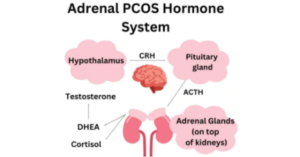Introduction
High calcium levels in the blood, also known as hypercalcemia, is a condition that can impact your overall health in multiple ways. When the body accumulates too much calcium, it can disrupt various systems, leading to symptoms that can range from mild discomfort to severe medical emergencies.
Hypercalcemia, or elevated calcium levels in the bloodstream, occurs when calcium builds up beyond the normal range, impacting bodily functions that depend on balanced calcium levels, such as bone strength, nerve transmission, and muscle contraction. Understanding hypercalcemia can help you take steps to manage or prevent it and maintain good health.
Table of Contents
What is High Calcium in the Blood?
High calcium in the blood means that the level of calcium exceeds the normal range (typically between 8.5 and 10.2 mg/dL). Calcium levels higher than 10.5 mg/dL are usually considered high. This excess can stem from various underlying conditions or lifestyle factors. Hypercalcemia can be temporary or chronic, depending on the root cause and how the body responds to treatment.
Causes of High Calcium Levels in Blood
Hypercalcemia can result from several primary and secondary factors:
Primary Causes: The most common primary cause is an overactive parathyroid gland (hyperparathyroidism), which controls the body’s calcium levels. Parathyroid glands might release too much hormone, causing calcium to be released from bones into the bloodstream.
Secondary Causes: Certain health conditions, medications, or lifestyle choices can lead to high calcium levels. These include prolonged immobilization, certain cancers, chronic kidney disease, dehydration, and excessive intake of vitamin D or calcium supplements.
Understanding the underlying cause of hypercalcemia is crucial for effective treatment.
Symptoms of High Calcium Levels
Hypercalcemia symptoms can vary based on the severity of the condition. Mild cases may show no symptoms, while severe cases can lead to multiple complications.
Early Signs:
- Fatigue: Feeling unusually tired or weak is one of the initial signs.
- Nausea and Vomiting: Digestive disturbances can occur as calcium levels rise.
- Headaches: Persistent headaches may be an early indicator.
Severe Symptoms:
- Muscle Weakness: High calcium levels can interfere with muscle contraction.
- Bone Pain: Increased calcium levels may weaken bones, leading to pain and even fractures.
- Confusion and Disorientation: Severe hypercalcemia can affect cognitive function, causing confusion or altered mental states.
Risk Factors
Certain factors increase the likelihood of developing hypercalcemia:
Age: Older adults are more susceptible to hypercalcemia, often due to related medical conditions.
Genetics: Family history of hyperparathyroidism or similar endocrine disorders can increase the risk.
Lifestyle: Sedentary habits and high-calcium diets may contribute to high calcium levels.
It is important for individuals to be aware of these risk factors so they can take preventative measures.
Health Complications from High Calcium

Elevated calcium levels in the bloodstream can impact several vital organs and systems.
Kidneys: High calcium can lead to kidney stones, damage kidney function, and increase the risk of kidney failure.
Heart: An overload of calcium can cause irregular heart rhythms (arrhythmias) and increase the risk of heart attacks.
Bones: Excessive calcium often comes from the bones, which can lead to weakened bones, fractures, and osteoporosis.
These complications emphasize the importance of managing calcium levels.
How to Diagnose High Calcium Levels
Diagnosing hypercalcemia requires a few common tests:
Blood Tests: The primary diagnostic test is a blood test to measure calcium levels and identify the severity of the condition.
Imaging Tests: Imaging may be used to check for signs of osteoporosis or kidney stones.
Parathyroid Hormone (PTH) Test: To determine if an overactive parathyroid gland is the cause, a PTH test can be conducted.
These tests provide a comprehensive view of calcium levels and potential causes, guiding effective treatment plans.

Dietary Recommendations
Managing diet is crucial when dealing with high calcium levels. It’s important to:
Avoid High-Calcium Foods: Limit intake of dairy products, fortified cereals, leafy greens, and calcium-fortified drinks.
Incorporate Low-Calcium Foods: Include a variety of low-calcium options, such as lean proteins, non-dairy substitutes, and fiber-rich foods to support kidney health and minimize calcium buildup.
Working with a dietitian can be beneficial in creating a calcium-balanced meal plan.

Lifestyle Adjustments
Adjusting lifestyle habits can be helpful in managing hypercalcemia:
Exercise: Regular physical activity strengthens bones and promotes overall health, which can prevent excess calcium release from bones into the bloodstream.
Hydration : Drinking plenty of water helps the kidneys process and excrete excess calcium. Staying hydrated is essential to prevent kidney complications associated with hypercalcemia.
Incorporating these habits into your daily routine can help manage calcium levels more effectively.
Medical Treatments for High Calcium
Several medical treatments are available to help manage hypercalcemia:
Bisphosphonates: These medications slow down bone resorption, preventing calcium release into the blood.
Diuretics: Often prescribed to help the body excrete excess calcium.
Corticosteroids: Sometimes used if hypercalcemia is due to excess vitamin D intake.
It is always advisable to consult with your healthcare provider to choose a treatment plan that is suitable for you.
Alternative Therapies

Some individuals explore alternative therapies to complement conventional treatment. These can include:
Herbal Remedies: Certain herbs, like dandelion root, may support kidney function, potentially aiding in calcium regulation.
Complementary Supplements: Supplements such as magnesium may help counterbalance calcium levels, although it’s important to use these under medical guidance.
Always consult a healthcare professional before starting any alternative treatments to ensure they are safe and effective for your situation.
When to Seek Emergency Care
If you experience symptoms such as difficulty breathing, chest pain, or sudden confusion, seek immediate medical attention. These could indicate severe hypercalcemia or related complications that require urgent intervention.
Prevention of High Calcium Levels
Preventing hypercalcemia involves a balanced diet, regular exercise, and monitoring of calcium levels if you are at risk. Avoiding excessive calcium or vitamin D supplementation, unless prescribed, can also help prevent hypercalcemia.
Living with High Calcium Levels
Living with hypercalcemia requires careful attention to dietary and lifestyle choices, as well as regular monitoring of calcium levels. Following a doctor’s advice and staying informed can help you manage your condition and maintain a good quality of life.
Conclusion
Hypercalcemia, or high calcium levels, can pose significant health risks if left unaddressed. By understanding the causes, symptoms, and treatment options, individuals can take proactive steps to manage or prevent high calcium levels, protecting their overall health and well-being.
Frequently Asked Questions (FAQ’s)
The normal range for blood calcium is typically between 8.5 and 10.2 mg/dL.
Common symptoms include fatigue, nausea, muscle weakness, confusion, and, in severe cases, bone pain and kidney issues.
Blood tests are the primary method, along with imaging tests and parathyroid hormone testing to determine underlying causes.
High-calcium foods like dairy, fortified cereals, and certain leafy greens should be limited.
Yes, hypercalcemia can lead to heart arrhythmias and increase the risk of heart attack.
The presence of excessive calcium in the body can cause kidney stones, chronic kidney disease, and, in severe cases, kidney failure.
Treatments may include medications like bisphosphonates, diuretics, and corticosteroids to lower calcium levels.
Immediate care is needed if you experience severe symptoms, such as chest pain or difficulty breathing.
Yes, adjusting diet, staying hydrated, and regular exercise can aid in managing calcium levels.
In many cases, hypercalcemia can be managed or prevented with lifestyle adjustments and regular checkups.

10 Proven Benefits of Bananas for Health and Well-being
Bananas are known for their natural sweetness, ease of peeling and rich nutrition. This makes them one of the most

Disease X: The Next Pandemic?
Emerging infectious diseases pose one of the greatest threats to human health and global stability. One of them, “Disease X”

The Remarkable Benefits of Eating Acorn Squash in Winter
Acorn squash has all the qualities that make it special. Winter calls for warmth, comfort, and nutrition, and acorn squash

Omega-3 Fatty Acids
Omega-3 fatty acids play a very important role in the nutrients needed to maintain overall health. As people are getting



